
Wewak: The Gateway to Papua New Guinea's Rich Heritage
Wewak, a charming coastal town in Papua New Guinea, offers a unique blend of natural beauty and cultural heritage. Nestled on the northern coast, Wewak is the capital of the East Sepik Province and serves as an ideal starting point for exploring the region's diverse attractions. The town itself boasts picturesque beaches, lush greenery, and a warm, welcoming atmosphere that makes it a delightful destination for tourists. One of the main draws of Wewak is its proximity to the Sepik River, one of the longest rivers in Papua New Guinea. The river is renowned for its stunning landscapes and traditional villages, where visitors can witness the rich cultural traditions of the indigenous people. Canoe trips along the Sepik River provide an unforgettable experience, offering glimpses of intricate wood carvings, vibrant dances, and age-old rituals that have been preserved for generations. In addition to its cultural allure, Wewak is also a haven for history enthusiasts. The town played a significant role during World War II and is home to several historical sites, including war memorials and relics. The Japanese War Memorial, located on Mission Hill, offers panoramic views of the town and the surrounding coastline, serving as a poignant reminder of the region's past. For those interested in diving, the waters around Wewak are teeming with marine life and sunken war relics, making it a fascinating spot for underwater exploration.
Local tips in Wewak
- Visit the Sepik River villages with a local guide to fully appreciate their cultural significance.
- Take a boat trip to the nearby islands of Muschu and Kairiru for pristine beaches and snorkeling.
- Explore the local markets to find unique handcrafted artifacts and souvenirs.
- Learn a few basic phrases in Tok Pisin, the local language, to enhance your interactions with the friendly locals.
- Wear light, breathable clothing and bring insect repellent to stay comfortable in the tropical climate.
Wewak: The Gateway to Papua New Guinea's Rich Heritage
Wewak, a charming coastal town in Papua New Guinea, offers a unique blend of natural beauty and cultural heritage. Nestled on the northern coast, Wewak is the capital of the East Sepik Province and serves as an ideal starting point for exploring the region's diverse attractions. The town itself boasts picturesque beaches, lush greenery, and a warm, welcoming atmosphere that makes it a delightful destination for tourists. One of the main draws of Wewak is its proximity to the Sepik River, one of the longest rivers in Papua New Guinea. The river is renowned for its stunning landscapes and traditional villages, where visitors can witness the rich cultural traditions of the indigenous people. Canoe trips along the Sepik River provide an unforgettable experience, offering glimpses of intricate wood carvings, vibrant dances, and age-old rituals that have been preserved for generations. In addition to its cultural allure, Wewak is also a haven for history enthusiasts. The town played a significant role during World War II and is home to several historical sites, including war memorials and relics. The Japanese War Memorial, located on Mission Hill, offers panoramic views of the town and the surrounding coastline, serving as a poignant reminder of the region's past. For those interested in diving, the waters around Wewak are teeming with marine life and sunken war relics, making it a fascinating spot for underwater exploration.
When is the best time to go to Wewak?
Iconic landmarks you can’t miss
In Wewak Boutique Hotel
Experience the charm of Papua New Guinea at In Wewak Boutique Hotel, where comfort meets local culture amidst stunning landscapes.
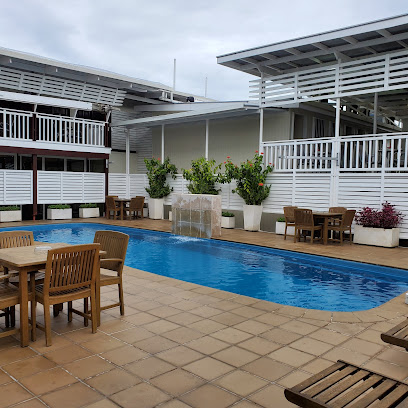
Wewak Airport AYWK
Explore the wonders of East Sepik Province through Wewak Airport, your gateway to stunning landscapes and rich cultural experiences.
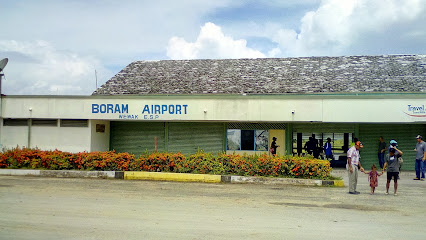
Talio Lodge
Discover the serene beauty of Talio Lodge in Wewak, where comfort meets adventure in Papua New Guinea's stunning East Sepik Province.
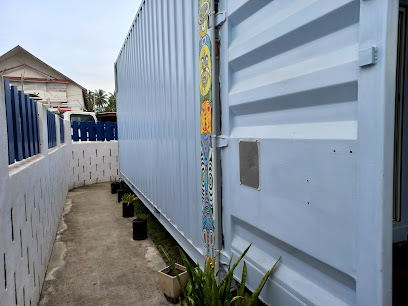
DAGUA MARKET ENTERPRISE LTD
Discover the authentic flavors and vibrant crafts at Dagua Market, a cultural gem in Wewak, Papua New Guinea, where local life thrives.
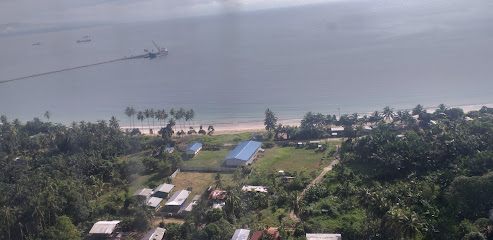
Grand Chief Sir Micheal Thomas Somare Tomb
Explore the Grand Chief Sir Michael Thomas Somare Tomb in East Sepik Province, a historical landmark honoring Papua New Guinea's first Prime Minister and his legacy.
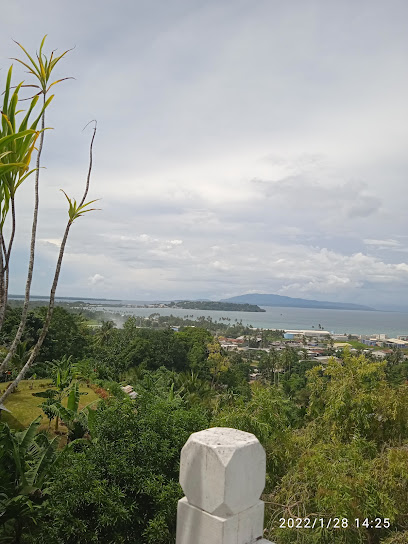
WEWAK Wharf
Discover the charm of Wewak Wharf, where culture meets stunning coastal views in Papua New Guinea.
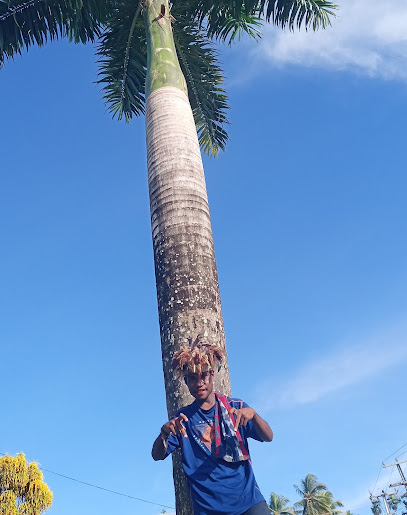
Wewak Hill
Discover the serene beauty and cultural richness of Wewak Hill in East Sepik Province, a tranquil retreat for every traveler.
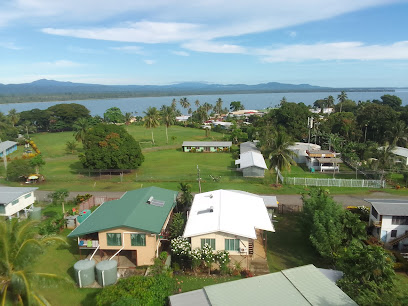
Wewak East Sepik
Explore Wewak East Sepik, where stunning landscapes meet vibrant local culture in Papua New Guinea's hidden gem.
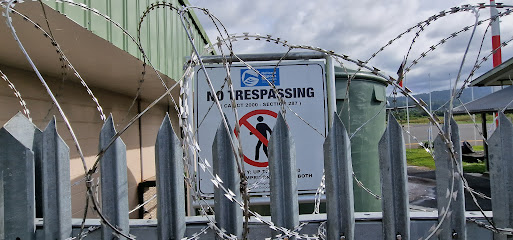
Memorial Ststue For Japanese Soldiers
Explore the Memorial Statue for Japanese Soldiers in Wewak, a significant historical landmark honoring the sacrifices of wartime soldiers.
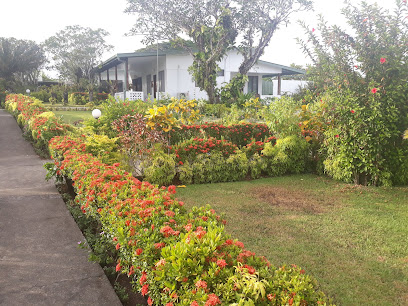
Meni Beach
Experience the untouched beauty and tranquility of Meni Beach in Wewak, East Sepik Province, where nature and serenity come together.
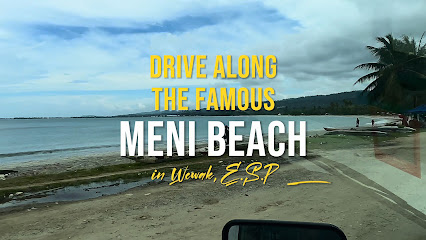
Kurinuo
Explore Kurinuo, a historic landmark in East Sepik Province, offering an enriching dive into Papua New Guinea's vibrant culture and history.

Unmissable attractions to see
Cape Wom International Memorial Park
Explore the rich history and natural beauty of Cape Wom International Memorial Park, a peaceful tribute in Wewak, Papua New Guinea.
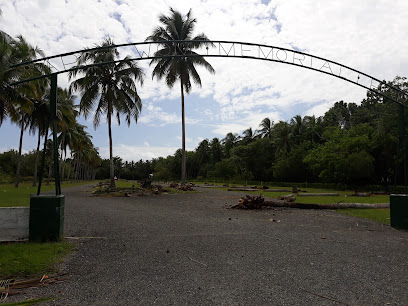
WEWAK Wharf
Experience the vibrant culture and breathtaking views of Wewak Wharf, a must-visit tourist attraction in Papua New Guinea.
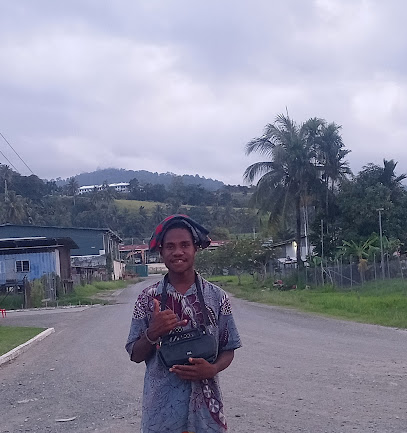
Mission Hill
Discover the breathtaking beauty and cultural richness of Mission Hill, a hidden gem in East Sepik Province, Papua New Guinea.
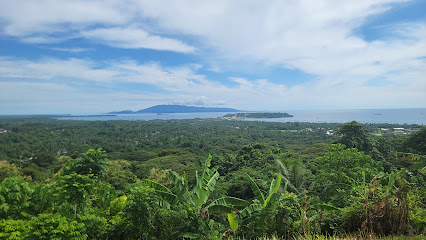
Japanese Peace Park, Wewak
Discover tranquility and history at the Japanese Peace Park in Wewak, a serene memorial dedicated to World War II veterans.

Kiarivu Guest House
Discover the serene beauty and rich culture of East Sepik at Kiarivu Guest House, your perfect escape in Papua New Guinea.

Meni Beach
Explore the serene beauty of Meni Beach in Wewak, East Sepik Province, a hidden paradise perfect for relaxation and cultural immersion.
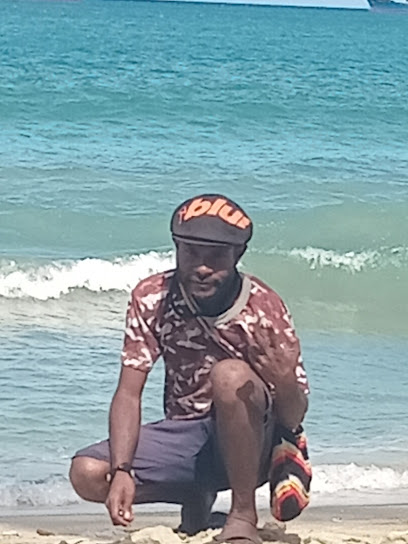
Essential places to dine
Airways Hotel
Experience unparalleled luxury and comfort at Airways Hotel in Port Moresby - your perfect travel companion near Jacksons International Airport.
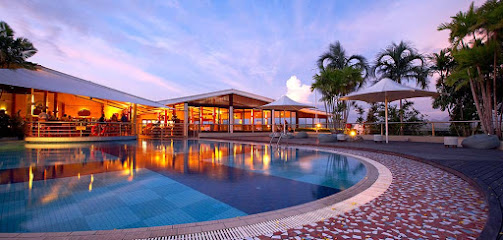
In Wewak Boutique Hotel
Discover tranquility and exquisite dining at In Wewak Boutique Hotel in East Sepik Province - your perfect escape in Papua New Guinea.
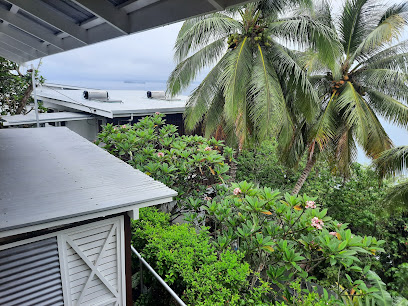
Savannah Bistro
Experience authentic Papua New Guinean cuisine at Savannah Bistro in Port Moresby – where flavor meets hospitality in an inviting atmosphere.
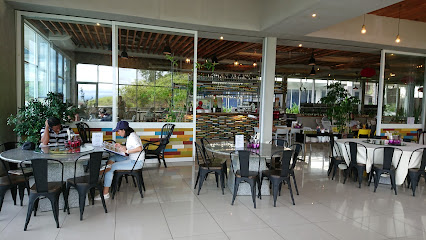
Asia Aromas Harbour Side West PNG
Experience authentic Chinese flavors with stunning harbor views at Asia Aromas Harbour Side West in Lae.
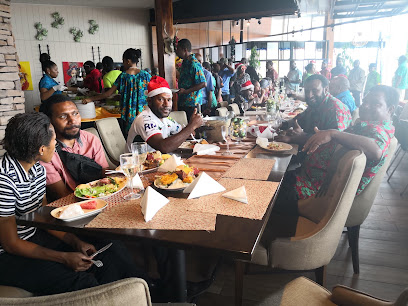
The Shady Rest Hotel
Discover comfort and local charm at The Shady Rest Hotel in Port Moresby – your ideal retreat for relaxation and exploration.
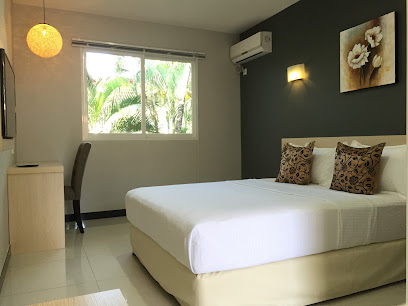
Duffy Cafe Harbourside
Experience local flavors at Duffy Cafe Harbourside in Port Moresby—where stunning views meet delightful cuisine.
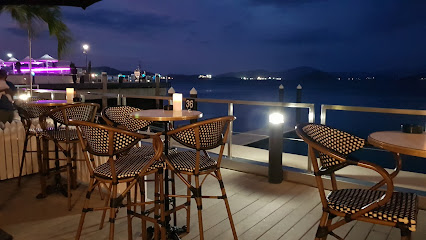
Grand Papua Hotel, a member of Radisson Individuals
Discover unparalleled luxury at Grand Papua Hotel in Port Moresby - where elegance meets local culture.
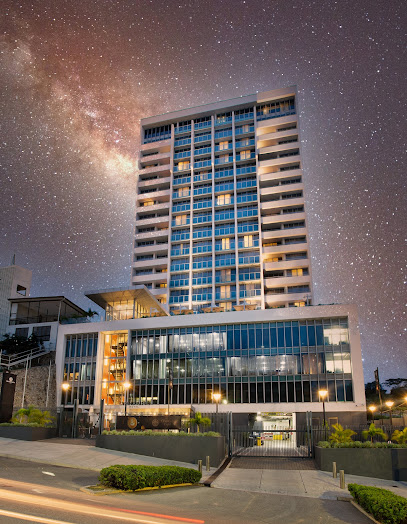
Pacific Gardens Hotel
Discover comfort and local charm at Pacific Gardens Hotel in Goroka's stunning Eastern Highlands - your perfect travel retreat.

Tandoor on the Harbour
Experience authentic Indian cuisine with stunning harbor views at Tandoor on the Harbour in Port Moresby.
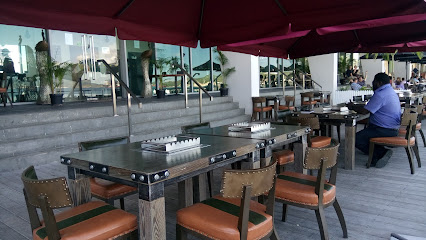
Jais Aben Resort
Experience unparalleled luxury and breathtaking beauty at Jais Aben Resort in Madang Province, where relaxation meets adventure amidst stunning ocean views.

Seoul House Restaurant
Discover the essence of Korea at Seoul House Restaurant in Port Moresby – savor traditional dishes crafted with passion and authenticity.
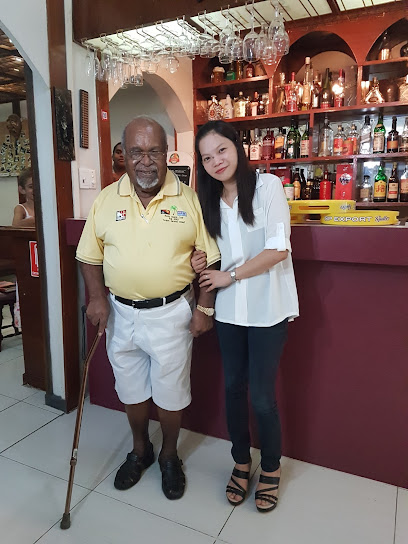
Village Inn Hotel & Apartments
Discover comfort at Village Inn Hotel & Apartments, your gateway to explore the beauty and culture of East Sepik Province.

Harbourside Hotel Limited
Experience tranquil island living at Harbourside Hotel Limited in Lorengau, Manus Province - your perfect retreat amidst nature's beauty.
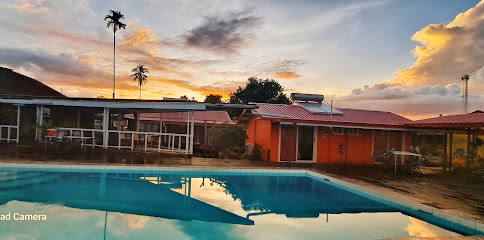
Wewak Airport AYWK
Explore the wonders of East Sepik Province through Wewak Airport, your gateway to adventure in Papua New Guinea's stunning landscapes.
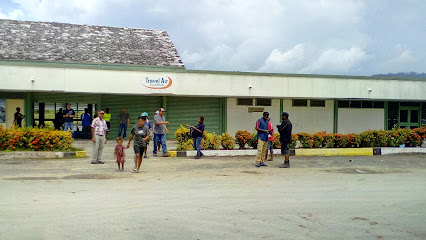
Rondon Ridge
Experience exquisite dining with breathtaking views at Rondon Ridge in Mount Hagen's Western Highlands.
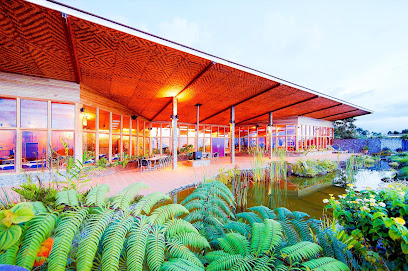
Markets, malls and hidden boutiques
In Wewak Boutique Hotel
Discover tranquility and comfort at In Wewak Boutique Hotel, your perfect getaway in East Sepik Province, Papua New Guinea.
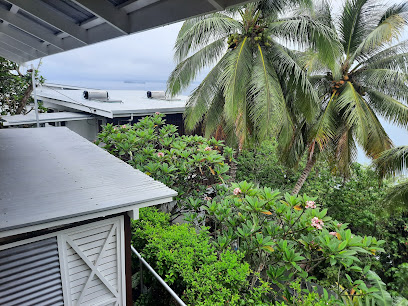
Laura Martin Market
Discover the heart of Wewak at Laura Martin Market, where local culture, fresh produce, and unique crafts await you.
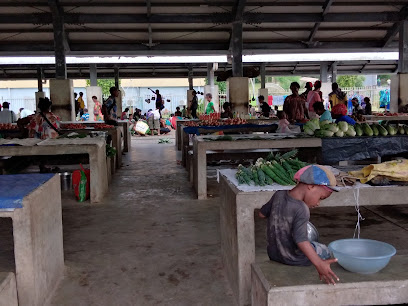
Tang Mow Supermarket
Discover local flavors at Tang Mow Supermarket in Wewak, a vibrant grocery store showcasing the best of Papua New Guinea's produce and culinary delights.
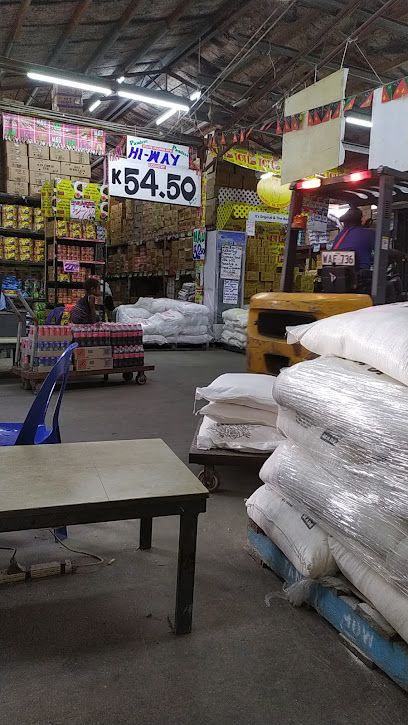
DAGUA MARKET ENTERPRISE LTD
Explore Dagua Market in Wewak for fresh produce, unique handicrafts, and a vibrant local culture that showcases the essence of East Sepik Province.
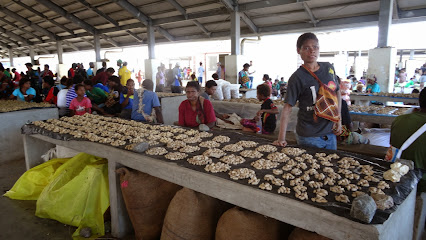
Papindo superstore
Explore the vibrant Papindo Superstore in Wewak, your perfect destination for local products, fresh produce, and unique souvenirs in East Sepik Province.
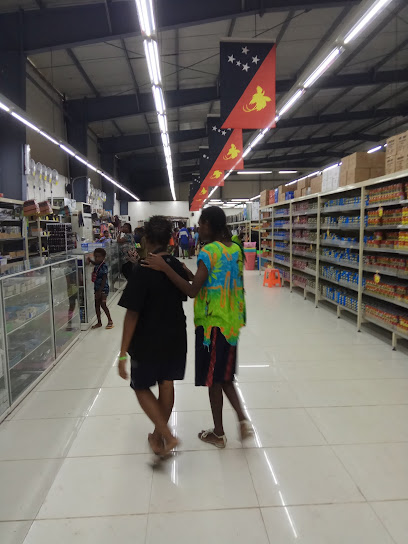
Papindo Town Shop
Explore the local flavors and vibrant culture of Wewak at Papindo Town Shop, your one-stop grocery destination in East Sepik Province.
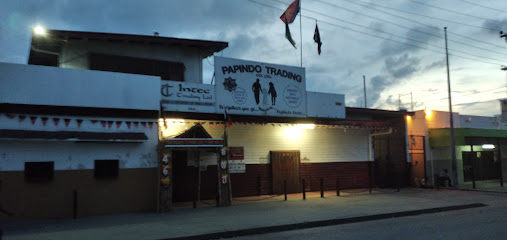
Northwest Industries PNG Limited
Discover unique home goods and local craftsmanship at Northwest Industries PNG Limited, a must-visit store in Wewak, East Sepik Province.
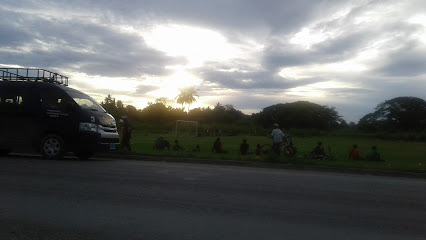
Moem Family Canteen
Experience authentic Papua New Guinean cuisine at Moem Family Canteen, a cozy spot in Wewak that reflects the region's rich culture and flavors.
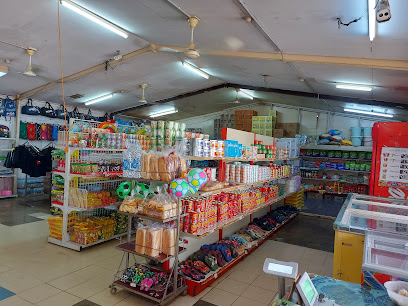
Sundaun Market
Explore the local flavors and vibrant culture at Sundaun Market, Wewak's culinary gem in East Sepik Province.
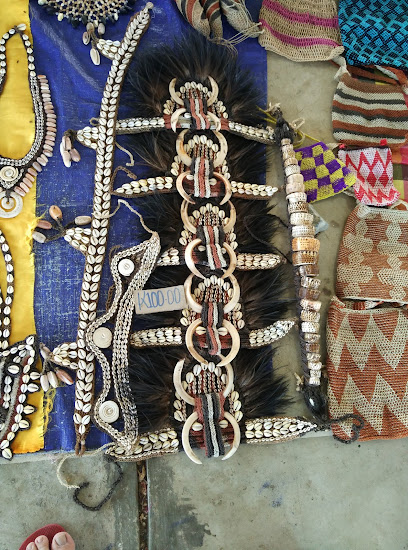
Kreer Market
Discover the vibrant Kreer Market in Wewak, a cultural hub where local flavors, crafts, and traditions come to life in East Sepik Province.
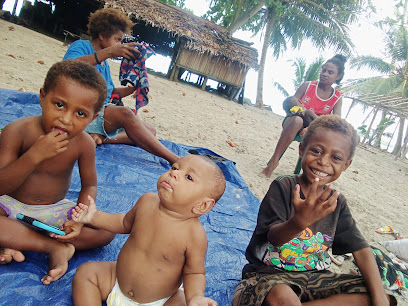
Kreer Fish market
Explore Kreer Fish Market in Wewak for the freshest seafood and a vibrant cultural experience showcasing local culinary traditions.

Simon Mamba Trading Ltd
Experience the essence of Papua New Guinea with unique local crafts and goods at Simon Mamba Trading Ltd in Wewak.
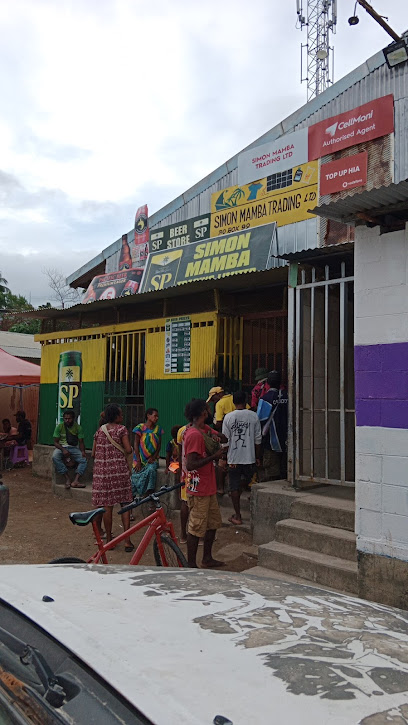
Lemotronics
Explore Lemotronics in Wewak for the latest electronics, exceptional service, and a taste of local technology culture.
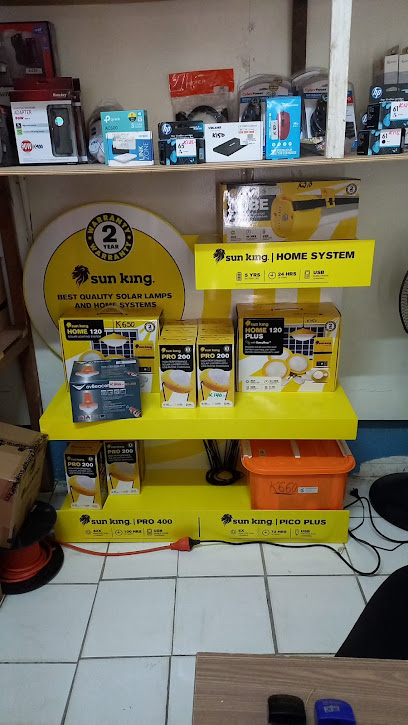
Garamut Enterprise
Discover the vibrant shopping scene at Garamut Enterprise in Wewak, where local culture meets modern retail in East Sepik Province.
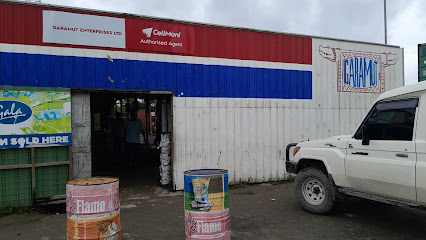
SHOPRITE
Discover a diverse shopping experience at Shoprite in Wewak, where local flavors and unique treasures await every visitor.
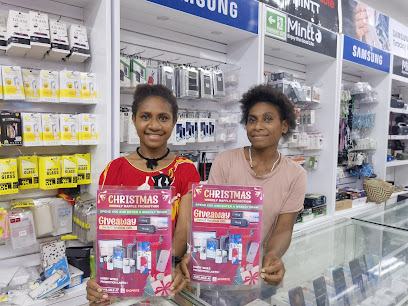
Essential bars & hidden hideouts
In Wewak Boutique Hotel
Discover the perfect blend of luxury and local charm at In Wewak Boutique Hotel, your gateway to the beauty of East Sepik Province.
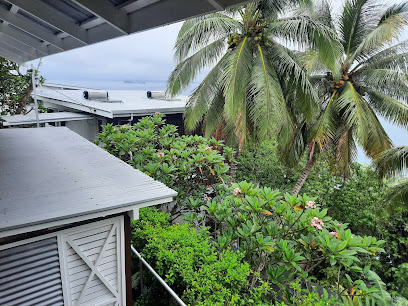
Village Inn Hotel & Apartments
Discover the charm of Wewak with a comfortable stay at Village Inn Hotel & Apartments, your gateway to East Sepik's beauty.

Wewak Airport AYWK
Experience the vibrant culture and stunning landscapes of East Sepik Province, starting at Wewak Airport, your gateway to Papua New Guinea.
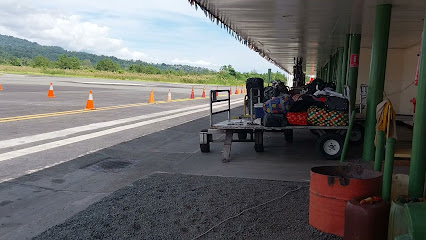
Talio Lodge
Discover the serene beauty and local flavors at Talio Lodge, your beachside retreat in East Sepik Province, Papua New Guinea.
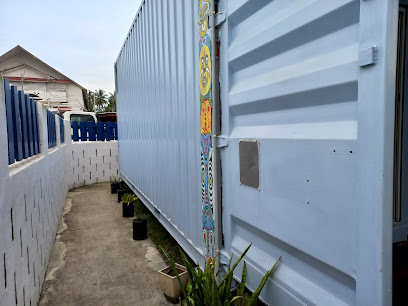
Inn Boutique Hotel 2, Wewak
Experience the charm of Wewak at Inn Boutique Hotel, your welcoming retreat in the heart of East Sepik Province.
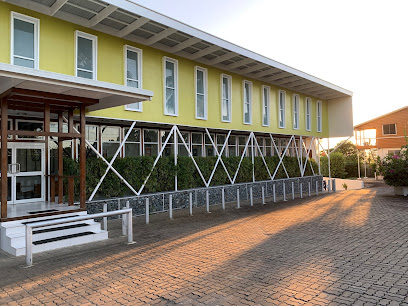
Tang Mow Supermarket
Discover the authentic flavors of Papua New Guinea at Tang Mow Supermarket in Wewak, where local culture meets everyday shopping.
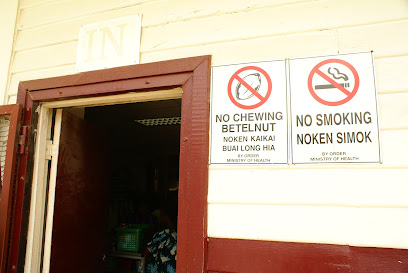
Papindo superstore
Explore the vibrant Papindo Superstore in Wewak, offering a delightful mix of local and international grocery products.
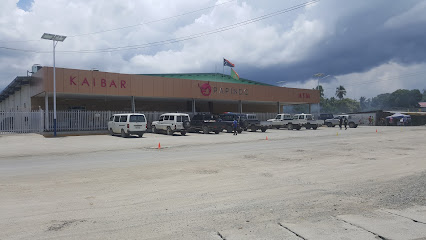
Paradise New Wewak Hotel
Discover the serene beauty and local charm of Paradise New Wewak Hotel in Papua New Guinea, your gateway to East Sepik Province.
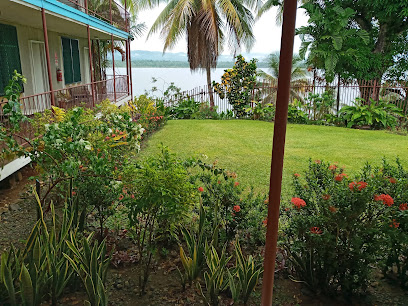
WEWAK Wharf
Discover the vibrant culture and breathtaking scenery at Wewak Wharf, a key destination in Papua New Guinea's coastal charm.
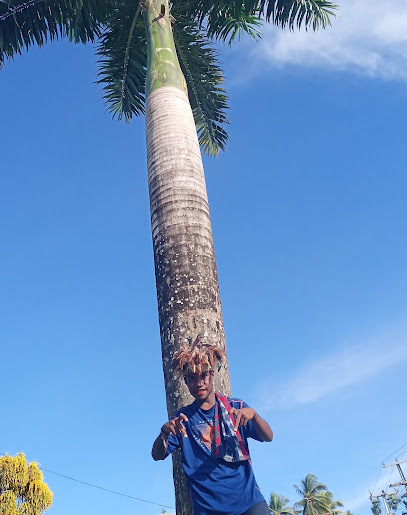
Lakwi Kai Bar
Discover the authentic flavors of Papua New Guinea at Lakwi Kai Bar in Maprik, a vibrant restaurant offering local cuisine in a welcoming atmosphere.
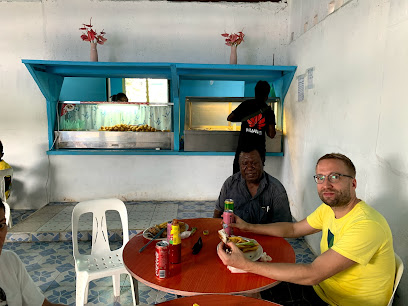
Auong Bay Leisure Lodge
Discover the tranquil beauty of Auong Bay Leisure Lodge on Mushu Island, a perfect getaway for nature lovers and adventure seekers in Papua New Guinea.

Wewak Town
Experience the rich culture and breathtaking landscapes of Wewak Town in East Sepik Province, Papua New Guinea.
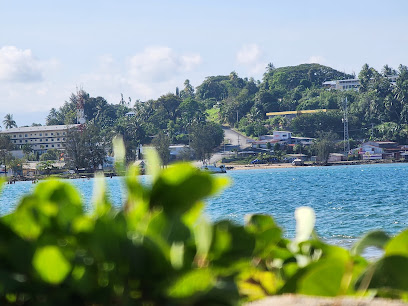
Wewak Hill
Discover the tranquil beauty of Wewak Hill, a serene retreat in East Sepik Province, Papua New Guinea, perfect for nature lovers and cultural explorers.
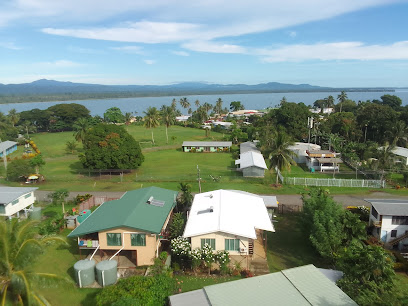
Wewak East Sepik
Discover the breathtaking landscapes and rich cultural heritage of Wewak East Sepik, a hidden treasure in Papua New Guinea.
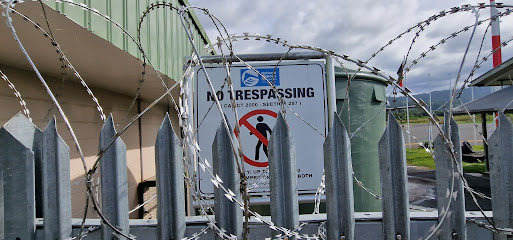
Local Phrases
-
- HelloTenkyu tru
[ten-kyu true] - GoodbyeGudbai
[good-bye] - YesYes
[yes] - NoNo
[no] - Please/You're welcomePlis
[please] - Thank youTenkyu
[ten-kyu] - Excuse me/SorrySori
[sorry] - How are you?Yu stap gutpela long hap?
[you stop good-pella long hap] - Fine. And you?Mi stap gut. Na yu?
[me stop good. nah you] - Do you speak English?Yu save toktok long tok Inglis?
[you save talk-talk long talk Inglis] - I don't understandMi no save
[me no save]
- HelloTenkyu tru
-
- I'd like to see the menu, pleaseMi laik lukim menyu, plis
[me like look-im menu, please] - I don't eat meatMi no kaik kaukau
[me no kai-kai cow-cow] - Cheers!Haus tasol!
[house-ta-sol] - I would like to pay, pleaseMi laik peim moni, plis
[me like pay-im money, please]
- I'd like to see the menu, pleaseMi laik lukim menyu, plis
-
- Help!Help!
[help] - Go away!Go lusim!
[go loo-sim] - Call the Police!Kolim Polis!
[call-im Polis] - Call a doctor!Kolim dokta!
[call-im doctor] - I'm lostMi lusim
[me loo-sim] - I'm illMi sik
[me sick]
- Help!Help!
-
- I'd like to buy...Mi laik baim...
[me like buy-im] - I'm just lookingMi tasol luk
[me ta-sol look] - How much is it?Em kainkain pris?
[em kai-kai price] - That's too expensiveEm i gutpela tumas
[em ee good-pella too-mas] - Can you lower the price?Yupela inap lo daunim pris?
[you-pella in-ap low down-im price]
- I'd like to buy...Mi laik baim...
-
- What time is it?Em hamas?
[em ha-mas] - It's one o'clockEm i wan
[em ee one] - Half past (10)Long hap pas ten
[long hap pass ten] - MorningMonin
[mo-nin] - AfternoonApinun
[ap-ee-noon] - EveningEvenin
[ee-vee-nin] - YesterdayDei igo
[day ee-go] - TodayDei
[day] - TomorrowTumoro
[too-mo-ro] - 1Wan
[one] - 2Tu
[too] - 3Tri
[tree] - 4Fo
[fo] - 5Faiv
[five] - 6Sikis
[see-kis] - 7Seven
[seven] - 8Eit
[eight] - 9Nain
[nine] - 10Ten
[ten]
- What time is it?Em hamas?
-
- Where's a/the...?Em i stap we?
[em ee stop way] - What's the address?Em i gat adres?
[em ee gut address] - Can you show me (on the map)?Yupela inap soim mi?
[you-pella in-ap soy-im me] - When's the next (bus)?Taim bilong nambawan?
[time bilong number-one] - A ticket (to ....)Wan tiket go ...
[one ticket go]
- Where's a/the...?Em i stap we?
History of Wewak
-
Prior to European contact, the area now known as Wewak was inhabited by various indigenous groups. These communities were adept at fishing, hunting, and agriculture, and they had intricate social structures and rich cultural traditions, including oral storytelling, dance, and unique art forms.
-
In the late 19th century, Wewak came under German colonial rule as part of German New Guinea. The Germans established trade and missionary activities in the region, leading to significant changes in the local way of life. However, the indigenous culture and traditions remained resilient despite these external influences.
-
Wewak was a strategic location during World War II and witnessed intense military activity. It became a major Japanese base after their forces captured it in 1942. The town and its surroundings were heavily bombed by Allied forces, leading to substantial destruction and loss of life. The Japanese eventually surrendered in 1945, leaving behind numerous war relics that can still be seen today.
-
After World War II, Wewak underwent significant reconstruction. Under Australian administration, efforts were made to rebuild the town and infrastructure. This period also saw the establishment of schools and hospitals, as well as improvements in transportation and communication networks.
-
Papua New Guinea gained independence from Australia in 1975. Since then, Wewak has grown as a regional hub in East Sepik Province. The town has developed modern amenities, including markets, schools, and healthcare facilities, while still preserving its rich cultural heritage. The annual Sepik River Crocodile Festival and other cultural events highlight the vibrant traditions of the local communities.
-
Wewak is a gateway to the Sepik River, one of the most culturally significant regions in Papua New Guinea. The Sepik River is renowned for its unique art, including intricate carvings and traditional masks. Wewak serves as a starting point for exploring the river and its surrounding villages, where visitors can experience traditional ceremonies, dances, and local craftsmanship.
Wewak Essentials
-
Wewak is accessed mainly through Wewak Airport (WEW), which has regular flights from Port Moresby, the capital of Papua New Guinea, as well as some other regional airports. Airlines PNG and Air Niugini operate these flights. Alternatively, you can reach Wewak by sea via coastal shipping services, though this is less common and more time-consuming.
-
Once in Wewak, transportation options include local taxis, which are relatively inexpensive and readily available. You can also hire a car for more flexibility, though driving conditions can be challenging due to the state of the roads. For shorter distances, walking is a viable option given the compact nature of the town. Public buses and minibuses (PMVs) operate within Wewak and can take you to nearby villages and attractions.
-
The official currency in Papua New Guinea is the Papua New Guinean Kina (PGK). While some hotels and larger businesses in Wewak accept credit cards, it is advisable to carry cash, particularly for smaller establishments and markets. ATMs are available in Wewak, but it's wise to bring sufficient cash from Port Moresby to avoid any inconvenience.
-
Wewak is generally safe for tourists, but it's important to take standard precautions. Avoid walking alone at night, especially in poorly lit areas. Some neighborhoods have higher crime rates, so it is advisable to stay in well-known tourist areas and seek advice from locals or your hotel. Always keep an eye on your belongings in crowded places and avoid displaying valuables openly.
-
In case of emergencies, dial 111 for police, fire, or medical assistance. It is recommended to have travel insurance that covers medical emergencies. Wewak has a local hospital and several clinics for medical issues. For minor health concerns, pharmacies are available where you can purchase over-the-counter medications. Always keep emergency contact numbers handy.
-
Fashion: Do dress modestly, especially when visiting local communities or religious sites. Avoid wearing revealing clothing. Religion: Do respect local customs and traditions. When visiting churches, dress conservatively and remove your hat. Public Transport: Do be courteous and respectful when using public transport. Don't eat or drink on public transport. Greetings: Do greet people with a smile and a handshake. Some locals may prefer a more traditional greeting, so be observant. Eating & Drinking: Do try local dishes and accept food offerings graciously. Don't refuse hospitality, as it is considered impolite.
-
To experience Wewak like a local, visit the Wewak Market where you can buy fresh produce and traditional goods. Engage with locals, as they are often friendly and willing to share stories about their culture. Don't miss the chance to visit the nearby beaches and the historical sites related to World War II. For a unique experience, take a boat trip to the nearby islands, which offer beautiful scenery and a glimpse into traditional island life.
Nearby Cities to Wewak
-
Things To Do in Mount Hagen
-
Things To Do in Vanimo
-
Things To Do in Madang
-
Things To Do in Buka
-
Things To Do in Goroka
-
Things To Do in Lae
-
Things To Do in Kimbe
-
Things To Do in Port Moresby
-
Things To Do in Kavieng
-
Things To Do in Rabaul
-
Things To Do in Kokopo
-
Things To Do in Alotau
-
Things To Do in Arawa
-
Things To Do in Port Douglas
-
Things To Do in Taro Island




